Egyptian chicken "super egg-laying"
In August 2022, when the specialized agency supported 200 Egyptian chicken breeds, Mr. Thai Thanh Lap started to raise them on a trial basis. At first, he couldn't help but worry: would the chickens adapt to the local climate? Would the care and disease prevention be more complicated than the Ben Tre chicken breed or the free-range chickens he had raised before?
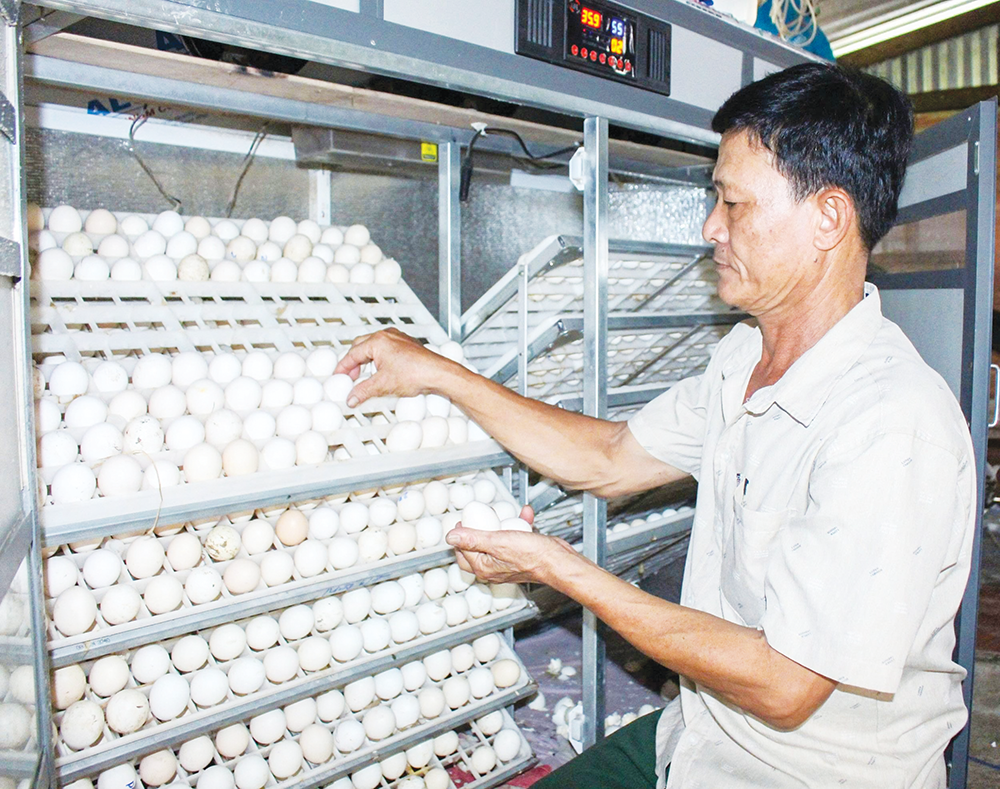
Thanks to the regular breeding of chickens, Mr. Lap supplies 1,200-1,300 breeding chickens to the market each month.
With the dedicated guidance of technical staff, combined with a spirit of learning, Mr. Lap learned on his own through newspapers, radio, and the Internet, then patiently applied it. Thanks to that, the chickens adapted well to the new environment and developed favorably. After more than four months, the chickens began to lay eggs, with a productivity of about 170-180 eggs per day, 30% higher than traditional free-range chickens.
“Egyptian chicken eggs have a lot of yolk, are rich in nutrients, and are popular with consumers. That is what makes me feel secure in sticking with this breed of chicken,” Mr. Lap shared.
From August 2023, the chickens began to lay eggs steadily. Realizing the great potential of the breed, Mr. Lap boldly invested in an incubator. Initially, it was just a small incubator worth 700,000 VND, incubating 100 eggs, with a hatching rate of 90%. The results exceeded his expectations, prompting him to continue buying more, gradually increasing the number to 7 incubators. After that, he was also supported by a specialized agency with a large capacity incubator, which can incubate up to 1,500 eggs at a time.
Currently, with 180 hens, he collects an average of 120-130 eggs per day, supplying the market with 1,200-1,300 chicks per month. With a selling price ranging from 15,000-20,000 VND/chicken, he earns 18-20 million VND per month, which translates to an income of over 200 million VND/year, but the investment cost for the chicken flock is only about 30% of the total revenue. This is a dream number for many small-scale farmers in the locality.
Mr. Lap compared: “Previously, I raised Ben Tre chickens but the economic efficiency was not high. Since switching to raising Egyptian chickens, my income has increased significantly. In particular, this breed of chicken is super egg-laying. I have raised it for more than 3 years and many hens still reproduce regularly.”
Biosafety - the key to success
If only looking at profits, many people will think that Mr. Lap's Egyptian chicken farming model is successful because of choosing the right breed. But in fact, the core factor lies in the biosafety farming process that he persistently applies. In farming, Mr. Lap has used biological bedding, both to keep the barn dry, limit odors, and to utilize waste to create organic fertilizer for growing crops. Thanks to that, the model operates in a closed cycle, friendly to the environment.
Not only paying attention to hygiene, Mr. Lap also fully vaccinated the chickens. Chicken feed is supplemented with vitamins and minerals to increase resistance. Thanks to that, the chickens develop evenly, with a low loss rate. Especially, when selling chickens, he always guides customers on chicken care and disease prevention techniques. It is this dedication that helps him build his reputation, customers increasingly trust and come to him more and more.
Currently, not only people in the Mekong Delta provinces, but also many households in the Northern and Central provinces also order chickens from Mr. Lap. Mr. Lap said he is planning to increase the size of his flock to about 500 chickens, including 300 hens, to meet the growing demand of the market.
Mr. Lap's success shows that to get rich from agriculture , farmers cannot keep doing things the old way, but must change to adapt. It is his boldness in experimenting with new chicken breeds, applying scientific and technical advances, and focusing on biosafety that has helped him increase his income, contribute to environmental protection, and develop sustainable livestock farming...
Article and photos: CAM LINH
Source: https://baocantho.com.vn/nuoi-ga-ai-cap-an-toan-bi-hoc-cho-hieu-qua-cao-a192019.html



![[Photo] Prime Minister Pham Minh Chinh inspects and directs the work of overcoming the consequences of floods after the storm in Thai Nguyen](https://vphoto.vietnam.vn/thumb/1200x675/vietnam/resource/IMAGE/2025/10/08/1759930075451_dsc-9441-jpg.webp)
![[Photo] Prime Minister Pham Minh Chinh attends the World Congress of the International Federation of Freight Forwarders and Transport Associations - FIATA](https://vphoto.vietnam.vn/thumb/1200x675/vietnam/resource/IMAGE/2025/10/08/1759936077106_dsc-0434-jpg.webp)




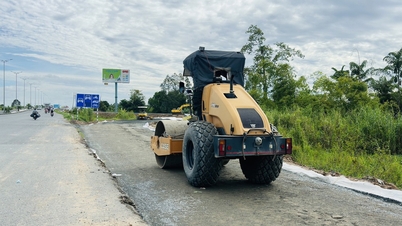


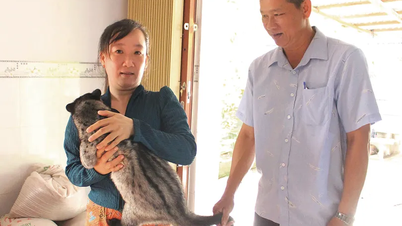
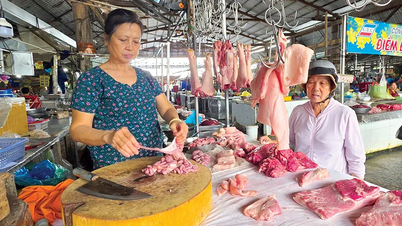



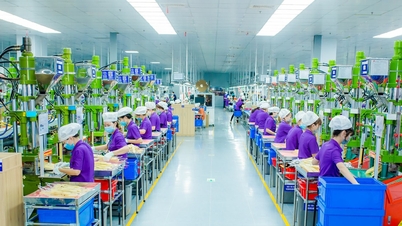













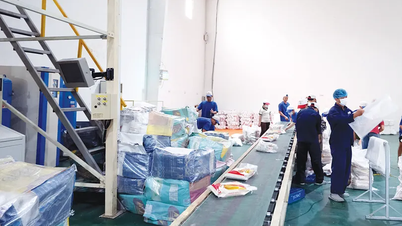
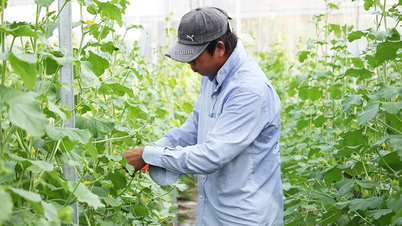






























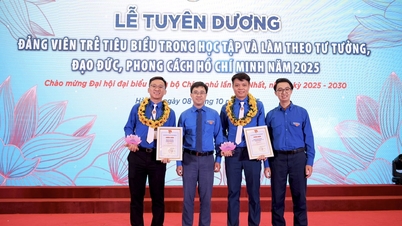




















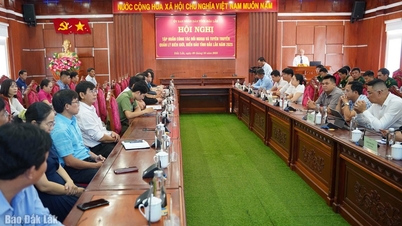

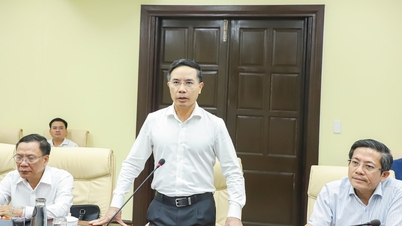
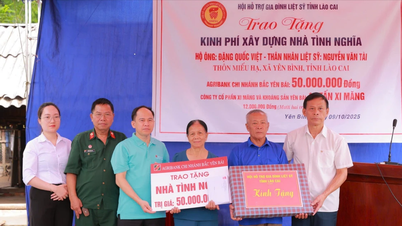







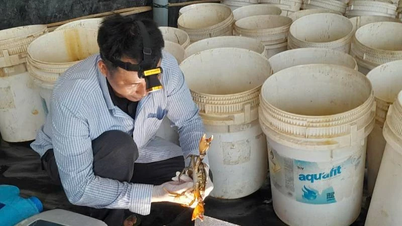










Comment (0)